Deaf Education

California educates approximately 14,000 Deaf and hard of hearing children within the state, and there are a few different educational options. There are two residential schools: California School for the Deaf Fremont (CSDF) in Northern California and California School for the Deaf Riverside (CSDR) in Southern California. CSDF was initially founded in Berkeley in 1860 and relocated to Fremont in 1980 while CSDR began accepting its first students in 1953. Both provide Bilingual-Bicultural (BiBi) curriculums that use the students’ native language (American Sign Language) and home language(s) in the classroom. They have sports programs, trade development classes, and serve day and boarding school students.
There are also several mainstreaming schools, such as the Marlton School in Los Angeles that integrate Deaf students into public school systems serving a majority hearing population. These might be set up in a variety of ways – for instance, a separate Deaf classroom, a Deaf student with an interpreter in a majority hearing classroom, or co-teaching by signing and speaking teachers in a mixed Deaf and hearing classroom. More than 70% of Deaf and hard of hearing students in the U.S. attend mainstreaming programs.
According to the Postsecondary Achievement of Deaf People in California: 2017 report published by the National Deaf Center on Postsecondary Outcomes, 78% of Black Deaf California students graduate from high school compared to 91% of Black hearing California students. The classroom has not always been a friendly place for Black Deaf students, who have had to navigate low expectations, stereotyping, audism, racism, and anti-blackness within the curriculum and classroom spaces (Williamson, 2007). On the other hand, Black Deaf students have been resilient, using Black Deaf Community Cultural Wealth, or skills and knowledge possessed and learned to survive and resist oppression within the educational system (Stapleton, 2016). It takes a village of families, teachers, school counselors, interpreters, administrators, and more to support young Black Deaf students to rise to their fullest potential. There is no one path for Black Deaf students to succeed, and our community members share their journeys, the highs and lows, and moments of resistance as they navigated their K-12 education.
ReferencesStapleton, L. D. (2016). Audism and racism: The hidden curriculum impacting Black d/Deaf college students in the classroom. Negro Educational Review, 67(1-4), 149-169.
Williamson, C. (2007). Black Deaf Students: A Model for Educational Success. Gallaudet University Press.
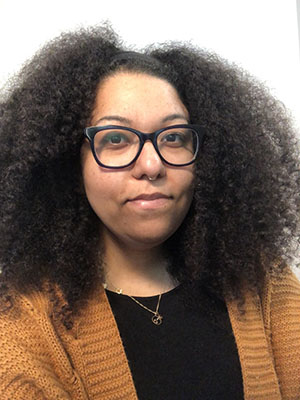
Kailyn Aaron-Lozano
Kailyn Aaron-Lozano is a multi-talented artist/educator with a wide range of interests. This South Central Los Angeles native holds a History degree from California State University, Northridge, and two Master’s degrees from Gallaudet University in Deaf Studies and Sign Language Education. ASL translation with music is her love, and she has worked on DPAN's "Reverse Polarity," ATT's "Different Colors," Sesame Street's compilation of ASL music videos, and many others. She has co-authored a chapter entitled "Sign Language Music Videos: Language Preservation or Appropriation?" in The Routledge Companion to Art and Disability. She favors deaf/ASL artists, who she believes deserve more exposure in the mainstream when it comes to music. For more information, please reach her at:
Watch Interview with Kailyn Aaron-Lozano
Interviewer: Alexis Ayon
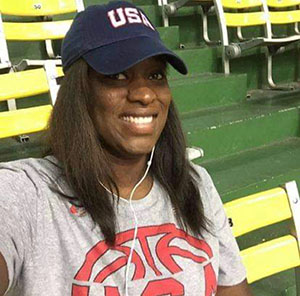
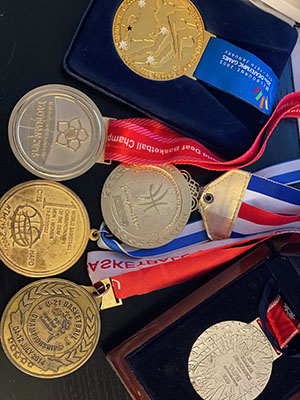
Vic'Toria Crockett
Originally from Long Beach, California, in the suburb of Harbor City, Victoria is an international basketball player and product of the California public school system. Growing up, she and her sister played basketball, and she went on to play at Gallaudet University. She eventually played and coached in the Deaflympics World Games. Basketball has been a big part of her life, identity development, and safe haven. She is currently a coach for the California School for the Deaf Riverside.
Read more about her in the article titled Crockett knows sister's difficulties.
Watch Interview with Vic'Toria Crockett
Interviewer: Carla Cervantes
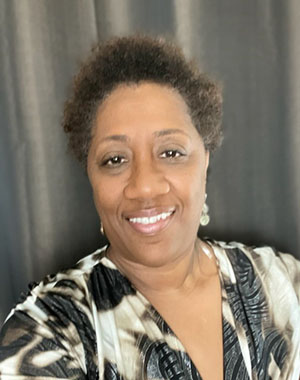
Alice Rash
Alice Rash is a passionate teacher in her 23rd year of teaching at California School for the Deaf in Riverside, and she advises the High School Ebony Club. Alice is married to her husband, Steven they have two CODA adults, and two dogs. In her free time her passions are crafting for holidays and/or special occasions and traveling and experiencing diverse cultures around the world. Alice is also a huge fan of NFL Packers, Green Bay.
Watch Interview with Alice Rash
Interviewer: Tyra Darnell White
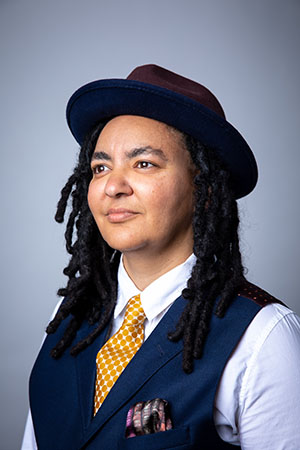
Dr. Rezenet Moges-Riedel
Rezenet Moges-Riedel, Ed.D, is Assistant Professor in ASL Linguistics and Deaf Cultures program at California State University, Long Beach. She also teaches as an Adjunct Lecturer at Gallaudet University in the MASLED program. Her dissertation focuses on intersectional experiences and retention of Deaf Faculty of Color, working at postsecondary institutions. Her current works are heavily shaped by critical race theory, which she reframed "White Oralism" and "Black Deaf Gain." Her research interests also encompass linguistic anthropological issues, such as sign language contact, demissionization, and female masculinity signing styles. Moges(-Riedel) has published in Journal Committed to Social Change on Race and Ethnicity and Sign Language Studies journal. She also had several book-chapters published by University of California Press, Oxford University Press and Gallaudet University Press.
Watch Interview with Dr. Rezenet Moges-Riedel
Interviewer: Raul Castillo


